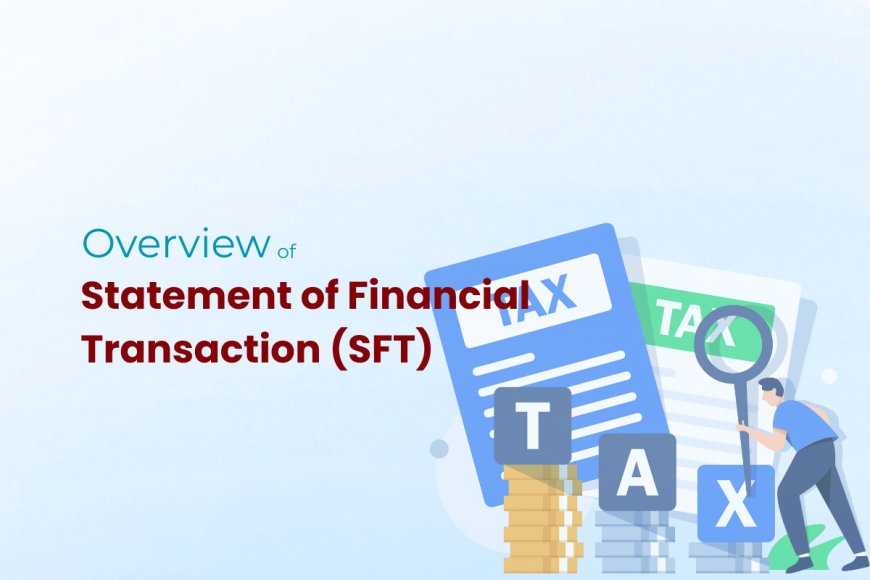SFT Reporting Explained: Who Must Report High-Value Transactions and Why

SFT stands for Statement of Financial Transaction. It's a mandatory report under the Income Tax Act, 1961, requiring specified entities to report certain high-value financial transactions to the Income Tax Department.
Who Needs to Report?
Certain entities are designated as "reporting persons." These include:
-
Banks and Co-operative Banks
-
Post Offices
-
Nidhi Companies & NBFCs
-
Companies (issuing shares, bonds, debentures)
-
Mutual Funds
-
Registrars/Sub-Registrars of property
-
Authorized persons dealing in foreign exchange
-
Persons liable for tax audit (under Section 44AB)
What Transactions are Reported?
A variety of high-value transactions are covered. Some common examples include:
-
Cash Deposits: Large cash deposits/withdrawals in savings or current accounts.
-
Time Deposits (FDs): Making fixed deposits.
-
Credit Card Payments: High-value payments made via credit cards.
-
Investments: Purchasing shares, bonds, debentures, or mutual fund units.
-
Property Transactions: Buying or selling immovable property.
-
Foreign Currency: Receiving payments for sale of foreign currency.
-
Cash Sales: Cash receipts for sale of goods or services (for tax auditable entities).
Are there Limits? (Thresholds)
Yes, transactions are reported only if they cross specific monetary thresholds in a financial year. Examples:
-
Cash Deposits (Savings): ₹10 Lakhs or more
-
Cash Deposits/Withdrawals (Current): ₹50 Lakhs or more
-
Time Deposits: ₹10 Lakhs or more
-
Property Purchase/Sale: ₹30 Lakhs or more (transaction value or stamp duty value)
-
Mutual Fund/Shares/Bonds: ₹10 Lakhs or more (for acquiring units/securities)
-
Cash Payment for Credit Card: ₹1 Lakh or more
-
Non-Cash Payment for Credit Card: ₹10 Lakhs or more
-
Cash Receipt for Goods/Services (by specified persons): Exceeding ₹2 Lakhs
(Note: These are key examples, and specific limits apply to each transaction type.)
How and When to Report?
-
SFT is filed electronically in Form 61A.
-
The due date for filing is 31st May of the financial year immediately following the year the transaction occurred.
What if You Don't Comply?
Failure to file SFT or providing inaccurate information can lead to penalties:
-
Late Filing: Penalty of ₹500 per day initially, which can increase to ₹1000 per day if not filed after receiving a notice.
-
Inaccurate Information: Penalties can also be imposed for reporting incorrect details.
What's Your Reaction?
 Like
1
Like
1
 Dislike
0
Dislike
0
 Love
0
Love
0
 Funny
0
Funny
0
 Angry
0
Angry
0
 Sad
0
Sad
0
 Wow
0
Wow
0




























